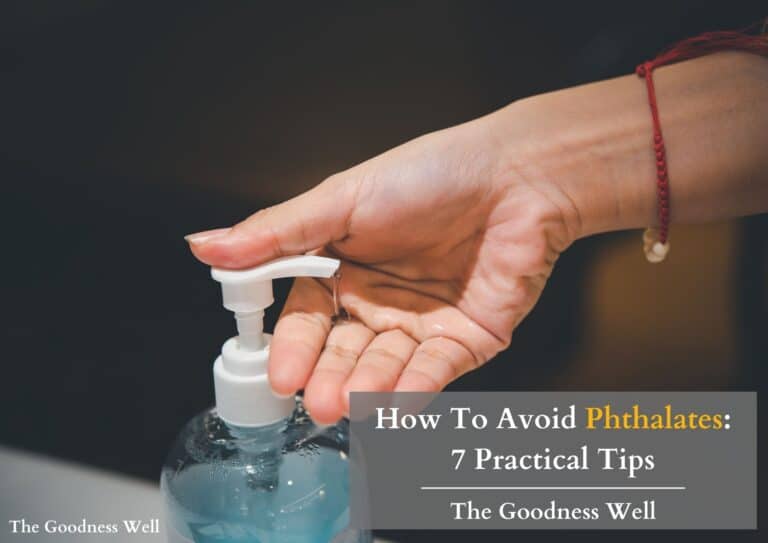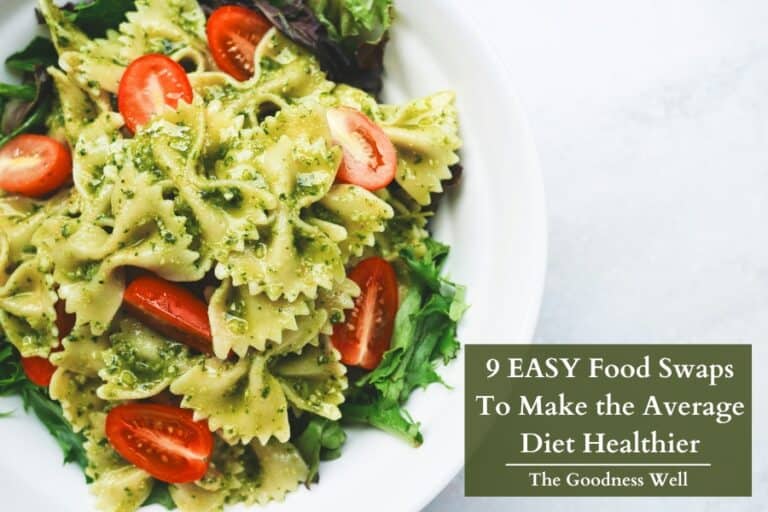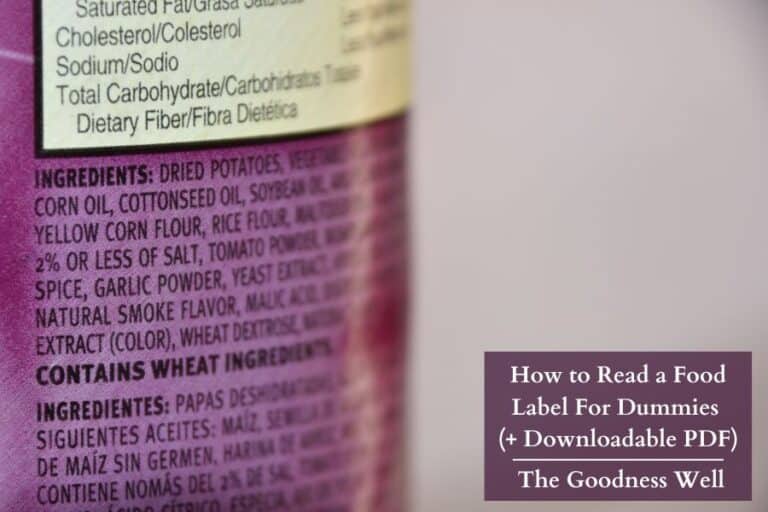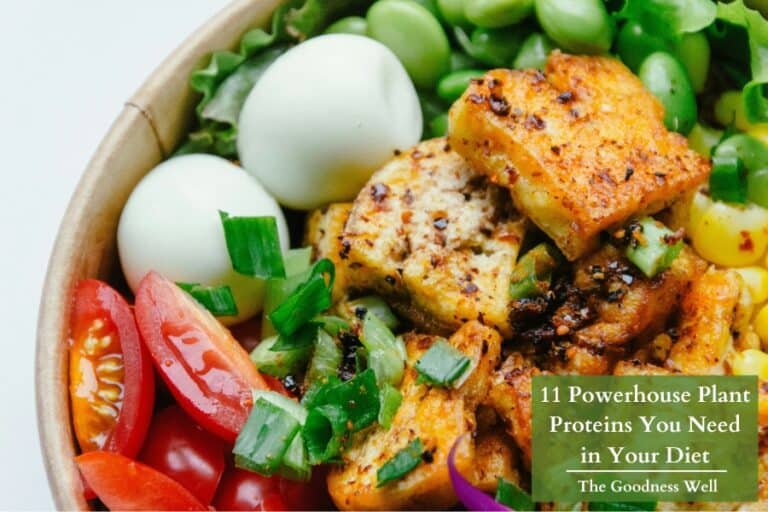Is Organic Really Better? (The 2025 Science-Backed Truth)

There is a lot of talk out there about how organic is a “scam” or the other side that claims conventional food is “toxic”.
But what is the truth? Is organic really better?
In this article, we break it down once and for all, using real research (with no bias) to back up the claims and show you if organic is truly worth the investment.
Here we go!
TL;DR
Yes, organic is better since it reduces exposure to harmful chemicals and pesticides—even though long-term studies haven’t proven these are harmful at regulated levels. Organic farming benefits the environment by improving soil health, supporting biodiversity, and cutting greenhouse gas emissions. Measured per acre, organic farming proves more sustainable despite lower yields. While health benefits aren’t fully proven, organic is a safer, more eco-friendly choice.
What Does Organic Mean?

Organic means food is grown or raised without artificial chemicals like pesticides or fertilizers and avoids genetically modified organisms (GMOs).
For animals, this means they’re fed natural food, not given antibiotics or growth hormones, and raised in a natural environment.
For example, organic livestock might graze (eat) on an untreated pasture or be given organic grains instead of processed feed with artificial additives.
The Debate: Conventional vs. Organic Farming Perspectives
Here are the views of those who believe organic is better and those who argue it offers no real advantage.

Arguments Supporting Organic Farming:
- Environmental Benefits: Improves soil health, reduces pollution, and promotes biodiversity, leading to more sustainable land management.
- Fewer Chemicals: Avoids synthetic pesticides and fertilizers, reducing exposure to potentially harmful chemicals for both people and wildlife.
- Climate Impact: Can lower greenhouse gas emissions per acre by enhancing carbon sequestration and reducing chemical inputs.
- Long-Term Sustainability: Protect ecosystems and maintain soil fertility, ensuring the land remains productive for future generations.
Arguments Supporting Conventional Farming:
- Cost-Effectiveness: Organic food is more expensive and less accessible to the average person, with no evidence of real benefits
- Higher Yields: Conventional farming produces more food per acre, which is critical for feeding a growing global population.
- Efficiency: Conventional methods require less land to grow the same amount of food, saving natural habitats from being converted to farmland.
- Food Security: Conventional farming can more reliably meet global food demand, especially in regions with limited agricultural resources or infrastructure.
Is Organic Really Better?
Yes, organic is better overall than conventional products but there are some things to understand.
Eating organic is associated with a reduced risk of:
- Infertility
- Birth Defects
- High BMI/Obesity
- Cancer
However, associations are not causality, which doesn’t prove organic reduces these health risks.
What We’re Unsure Of
Most studies are limited in proving organic food is better because of confounders (other factors that could actually be causing the reduced health risks) such as the overall lifestyle and diet choices of people who eat organic vs those who eat conventional foods.
Long-term clinical trials are needed to confirm eating organic over conventional reduces disease risk but unfortunately, there aren’t any.
What is Proven
Now there are certain aspects of the studies out there that do prove a few things:
- Organic foods have lower levels of toxic substances like heavy metals and pesticide residue while having higher concentrations of nutrients like omega-3 fatty acids in organic dairy and meat.
- Clinical trials confirmed significant reductions in pesticide levels in urine within a few days of switching to an organic diet.
Organic indeed has less exposure to these toxic chemicals, however, the argument is that the levels of these substances are not harmful since they are regulated to meet safety standards.
Again, there are also no long-term studies to prove whether eating these toxic substances at these low levels over time is harmful or not.
Nutritional Differences: Organic vs. Conventional
Some studies indicate that organic produce may have higher levels of certain nutrients, such as vitamin C, magnesium, and antioxidants (e.g., polyphenols and flavonoids) which are attributed to soil health, slower growth rates, and fewer chemical inputs in organic farming.

However, others find no significant differences in key nutrients like antioxidants, carotenoids, or flavonoids.
Overall, the nutritional difference isn’t significant, proving the nutrition you get from organic and conventional is about the same.
The problem is the addition of pesticides and harmful chemicals in conventional farming.
Organic farming doesn’t use these, which reduces exposure to substances that may cause health risks, even though we don’t have long-term studies proving harm from these low levels.
The Bottom Line
You are getting the same nutrients whether you eat organic or conventional but more toxic substances such as heavy metals and pesticide residue.
To me, the pesticides and other chemicals used in conventional farming are similar to the many food additives that were long deemed safe but later found to be harmful (such as artificial sweeteners, trans fats, or certain food colorings).
I believe pesticides and other chemicals found in conventional food will be deemed harmful one day.
Whether that’s true or not will be determined by future research, but in the meantime, choosing organic reduces your exposure to these substances and takes the “just to be safe” route.
But while the health risks of conventional farming may be inconclusive, their effect on the environment is certain.
Is Organic Better for the Environment?
Yes. Organic is better for the environment due to its promotion of biodiversity and soil health by avoiding synthetic pesticides and fertilizers. This prevents pollution from agricultural runoff and enhances the ecosystem while preventing issues like soil erosion and long-term degradation.

But why do some say organic isn’t better for the environment, or even worse?
Here are a few reasons:
- Organic farming typically has lower crop yields compared to conventional methods, requiring more land to produce the same amount of food.
- Expanding farmland for organic crops can reduce available land for carbon sequestration, potentially increasing greenhouse gas emissions.
- Some organic crops can have a higher carbon footprint compared to their conventional counterparts.
However, there’s one major thing these arguments tend to overlook.
Proper metrics.
People who argue that organic farming is worse focus on how much food is produced per pound.
This can make conventional farming look better because it grows more food per acre.
For example, a conventional farm that grows 100 tomatoes might seem more efficient than an organic farm growing 70.
But this way of measuring ignores the bigger picture: Organic farming’s impact is better represented by using land-based metrics.

Land-based metrics measure the environmental impact per acre rather than per pound of food.
This shows how organic methods improve the land by avoiding harmful chemicals, promoting biodiversity, and capturing carbon in the soil.
Organic farming also produces 43% fewer greenhouse gas emissions per acre than conventional farming, proving that even if organic yields are smaller, the long-term environmental impact is far more sustainable.
Also, some people think organic farming can’t solve food insecurity because it has lower yields.
However, many organic farms already produce as much as conventional ones for certain crops, and with better techniques, organic yields can improve even more
What Should You Do?
Our suggestion is to buy organic whenever possible.
This reduces your exposure to toxic chemicals, benefits the environment, and promotes better animal welfare, even if the long-term health effects of conventional pesticides aren’t yet fully understood.
A common misconception is that buying organic is just too expensive. However, with smart shopping strategies, it’s more than possible to eat organic on a budget.
Also, reducing meat consumption has an even bigger impact on lowering your environmental footprint than choosing organic produce alone.
Pair this with reducing food waste like composting and opt for locally sourced options, and you’ll make a huge difference for your health, wallet, and the planet.






